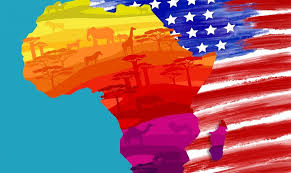
The United States is deploying a multifaceted approach in Africa that combines economic investments, security cooperation, and diplomatic mediation to secure access to strategic resources while countering Chinese and Russian influence, according to historian Amzat Boukari-Yabara.
The $25 billion Nigeria-Morocco gas pipeline exemplifies this strategy. Washington’s support for the 5,660 km project serves multiple aims: reducing Europe’s dependence on Russian gas following the Ukraine war, competing with China’s Jingye Group (already supplying construction materials), and expanding American influence in the region.
In the Democratic Republic of Congo, the U.S. strategy reveals contradictions. While companies like KoBold Metals (backed by Gates and Bezos) invest heavily in cobalt and copper, Washington simultaneously offers conditional military support in eastern Congo while positioning itself as mediator in the Rwanda conflict.
In Kenya, the U.S. is strengthening partnerships around rare earths essential for energy transition, part of a global race for critical minerals where Washington seeks to close the gap with Beijing.
Boukari-Yabara calls for an urgent unified continental response through transnational industries and resolution of the CFA franc issue, as African countries must determine whether this geopolitical rivalry can become an opportunity for sovereign development.
